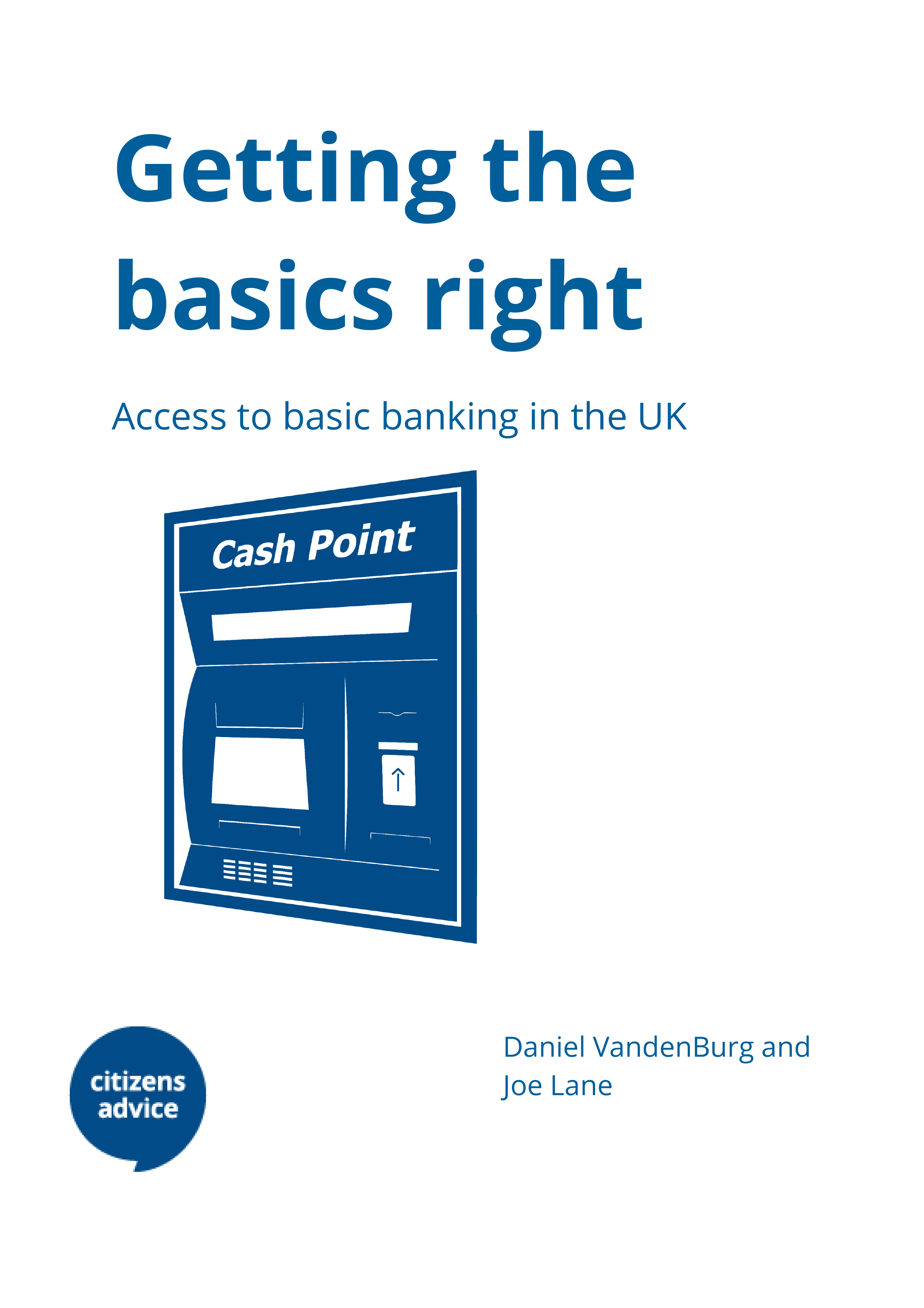Getting the basics right
Getting the basics right [ 450 kb]
A bank account is an essential part of participating in modern society. Without one, it is difficult to work and get the cheapest deals. Basic bank accounts were created in 2003 to help those without a bank account get one. A voluntary agreement in 2014, and the Payment Accounts Regulations (the PARs), effective since September 2016, have updated what is required of banks when providing basic accounts and given people in the UK a right to have a basic bank account.

The revised agreement required banks to make basic accounts visible and available to consumers who need them. The new regulations require banks to provide basic bank account customers with core services, such as access to Automated Teller Machines (ATMs), protection from fees and charges.
Based on visits to 559 bank branches in May 2016, a survey of 222 advisers, and literature provided by banks, we find that, since the agreement, banks have become better at providing basic accounts to those who need them.
We also identified a number of ongoing problems.
-
Some banks aren’t making their basic accounts visible enough in their current account range, so consumers don’t know they exist. That is compounded by the fact that not all banks allow people to apply for a basic bank account when they think they would benefit from one.
-
Banks’ processes for determining what account to give rely too much on credit checks. People who would benefit from a basic account - people in debt for instance - are sometimes not being offered one. In some cases, people with a legal right to a basic account, are still unable to access one.
-
Applying for a basic account is still too difficult. Branch staff are not always aware of what their bank offers and so give incorrect information which may mean people don’t open a basic account when they need one. Some banks’ requirements for proof of identity are still too inflexible and place unrealistic expectations on consumers.
-
The research also highlights possible future issues with the implementation of the new regulations - particularly how and when banks decide to migrate old-style basic account holders to new accounts and whether people who would benefit from a basic account are excluded by banks’ approaches to determining eligibility.
To make sure everyone who wants a bank account can get one and that basic accounts provide a service for those in financial difficulties this report makes ten recommendations for banks, regulators, and government.

